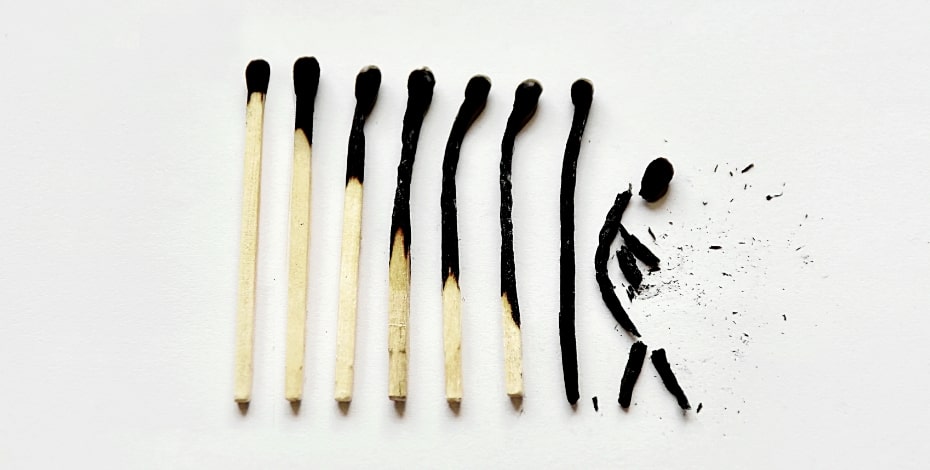
Reducing burnout and stress in healthcare

Now more than ever, it is essential for healthcare practitioners to consider their own health and wellbeing. Here are some suggestions for identifying burnout and minimising stress.
Physiotherapy can be a highly rewarding career, but—like all health professionals—physiotherapists can suffer from overwork and stress, particularly with the recent pressures COVID-19 has created for healthcare professionals.
The Physiotherapy Board of Australia is very aware of the challenges healthcare professionals are facing and encourages all physiotherapists to take the time to assess whether they may be experiencing, or at risk of, burnout and to take steps to minimise stress and reset their work-life balance.
Identifying burnout
The Essential Network for Health Professionals (TEN), funded by the Commonwealth, provides excellent online tools including a confidential self-guided mental health check-up, access to one-on-one clinical care and a new digital program for reducing burnout and rediscovering what drives you professionally.
According to TEN, the key features of burnout are physical and emotional fatigue, feeling distant or cynical about your work and a reduced sense of accomplishment.
Other signs of burnout, such as low mood, lethargy, feelings of hopelessness and trouble sleeping, are similar to the symptoms of depression.
However, burnout is generally linked to being at work, while depression tends to affect a person’s whole life.
‘Burnout is extremely common in healthcare, but you don’t have to go through it alone,’ says Black Dog Institute clinical psychologist and clinical research fellow Dr Peter Baldwin.
‘TEN offers a range of ways to reduce burnout, from digital treatments to peer support and free telehealth with mental health experts.’
Treat yourself
Physiotherapists often advise their patients on the importance of food, exercise and sleep, but workload can be a barrier when it comes to practitioners looking after their own wellbeing.
TEN suggests focusing on one brain-health factor (diet, sleep or exercise) each week and choosing one action each day, such as eating more fruit, turning off devices at a certain time before bed or having a five-minute ‘exercise snack’ with your lunchbreak.
A self-care plan stored on your phone or printed out can help remind you to take more time to do the things that make you happy, such as reading books, getting out in nature, calling a family member or connecting with friends.
The TEN Navigating Burnout program offers a step-by-step guide to self-care planning.
Reach out
TEN suggests setting up a regular ‘stress check-in’ with colleagues and that practitioners might like to consider ‘mental health coaching’ with a professional such as a psychiatrist or psychologist.
You can find a range of options for connecting with others on the TEN Navigating Burnout program or access free telehealth sessions via the TEN clinical consultation service.
The Physiotherapy Board of Australia aims to help health practitioners feel supported to look after their own physical and mental health and to provide support to their peers and colleagues.
Content supplied.
© Copyright 2025 by Australian Physiotherapy Association. All rights reserved.





